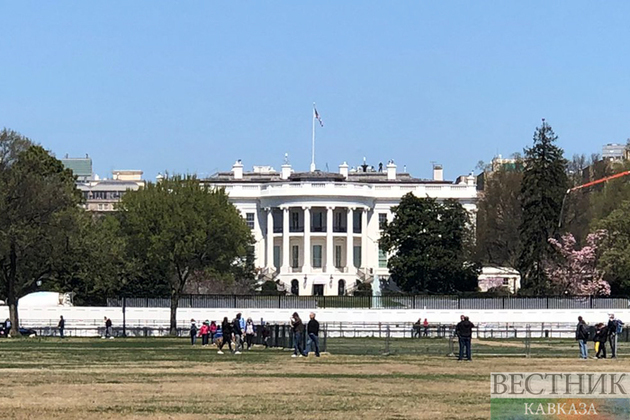The stamp of the Armenian lobby is unmissable on Washington’s document that is full of anti-Azerbaijani and even anti-Turkish agenda.
TRT World notes that the US Defense Budget (NDAA) for 2022, approved by President Joe Biden, is too focused on the South Caucasus issue. Separate points relate to the results of the 44-day war, and the implementation of the trilateral agreement between the Russian Federation, Azerbaijan and Armenia. At the same time, the document practically ignores Armenia's foreign policy miscalculations and blames Turkiye and Azerbaijan for the instability in the region.
The extent to which these accusations are unfair and poorly worked out can be understood almost immediately from the substantial contradictions in the text. For example, the authors of the initiatives incriminate Azerbaijan for the problems over the exchange of prisoners, and for the detention of a number of Armenian persons, who, as a result of the Karabakh reconciliation, had to be allegedly transferred to Yerevan. However, at the same time, the NDAA contains a caveat: there is very little reliable information about the condition or treatment of prisoners of war.
A small but characteristic illustration: the NDAA is trying to offend the Turkish defence industry only because its products helped Azerbaijan to ensure its security. The document contains requirements for the White House to report on whether the legendary Turkish drone Bayraktar, "deployed by Azerbaijan against Nagorno-Karabakh from September 27 to November 9, 2020", contain American-made details and whether this violates the Law on the Control of the Export of Arms or US sanctions policy. Despite a series of accusations, the NDAA requires the Biden administration to “interact at all levels with the Azerbaijani authorities”.
Criticism without pressure
The tone of the NDAA towards Turkiye and Azerbaijan is largely a reflection of the activity of the lobbyists of the Armenian National Committee of America (ANCA) and those "progressive" legislators who openly take a position close to Yerevan. For example, Congressman Frank Pellon, who can hardly be called impartial, was in favour of pressure on Baku and Ankara. In addition, in recent weeks, representatives of the terrorist organisation FETÖ, operating in the United States, have accounted for a fairly large array of anti-Turkish and anti-Azerbaijani ideas.
A close scrutiny of the document makes it clear that the lobbyists wanted to make the document much tougher in affairs of the South Caucasian region. Thus, Congress was pressured to legalise such measures as "suspension of military aid to Azerbaijan" or "lifting of the temporary moratorium on the 907th amendment"—an 1992 initiative that prohibited any US assistance to Baku. But none of this "cocktail" of sanctions was agreed upon.
Frank Pellon, after his "brilliant" ideas were not reflected in the text of the defence budget, tried to save face and said that "the NDAA includes important provisions aimed at holding Azerbaijan and Turkiye accountable”, although, by and large, the criticism is purely declarative. Pellon also bravely promised that he will closely monitor how the US executive branch reports on all items related to the policies of Baku and Ankara.
The biggest threat to the region
Considering such initiatives, the head of the White House understands very well that by giving a handout to some influential lobbying structure or "progressive" wing of party associates, he may lose strategic relations with those players on whom stability in the South Caucasus and in other regions depends. The whole situation shows the irrepressibility of ANCA and those who partner with it. "The Armenian lobby in Washington and its allies in both houses of Congress have been pushing for amendments to the NDAA prohibiting various forms of US government assistance to Azerbaijan, including even non-military aid," said Robert Cutler, a researcher at the Canadian Institute of Global Problems. According to him, border provocations against Azerbaijan did much to create the "necessary" background. The Karabakh clan and its comrades-in-arms in the Armenian armed forces calculated the time of clashes on the border with Azerbaijan in order to maximise the influence on lobbying efforts. Cutler is sure: the Armenian "war party", which purposefully stimulates anti-Azerbaijani sentiments in Yerevan, goes far beyond the borders of Armenia and has its protégés in Tehran, Moscow, Paris and, of course, Washington.
In this regard, according to the analyst, "the biggest threat to peace in the region" is "a coalition of official organisations and representatives of the Armenian diaspora”. If interested players want to change something, they must accept this reality and implement policies that would neutralise this lobbying influence, Cutler concludes.






